CPS Annual Meeting 2017
2017 Joint Meeting of the Canadian Phytopathological Society and the Canadian Society of Agronomy
Crop production and Disease Management – Cultivating Ideas
Abstract submission deadline is May 15th, 2017.
June 18 to 21, 2017
Delta Winnipeg Hotel
350 St. Mary Avenue
Winnipeg, Manitoba
On behalf of the local arrangements committee of the 2017 joint meeting of the Canadian Phytopathological Society (CPS) and the Canadian Society of Agronomy (CSA), we invite you to join us at the Delta Winnipeg Hotel, 350 St. Mary Avenue, Winnipeg, MB. The CPS and CSA are excited by the opportunity to co-host this 2017 joint meeting to enhance interaction between members of the two societies and broaden educational opportunities for their members.
The objectives of the CPS are to encourage research, education, and the dissemination of knowledge on the nature, cause, and control of plant diseases. CPS sponsored national and regional meetings promote communication among plant pathologists, and those interested in plant diseases from industry, government and academia.
The CSA is dedicated to enhancing cooperation and coordination among agronomists, recognizing significant achievements in agronomy, and providing opportunities to report and evaluate information pertinent to agronomy in Canada.
The CPS/CSA have negotiated a room rate of $169.00 (plus taxes)/night for a standard room at the Delta Hotel Winnipeg.
Program
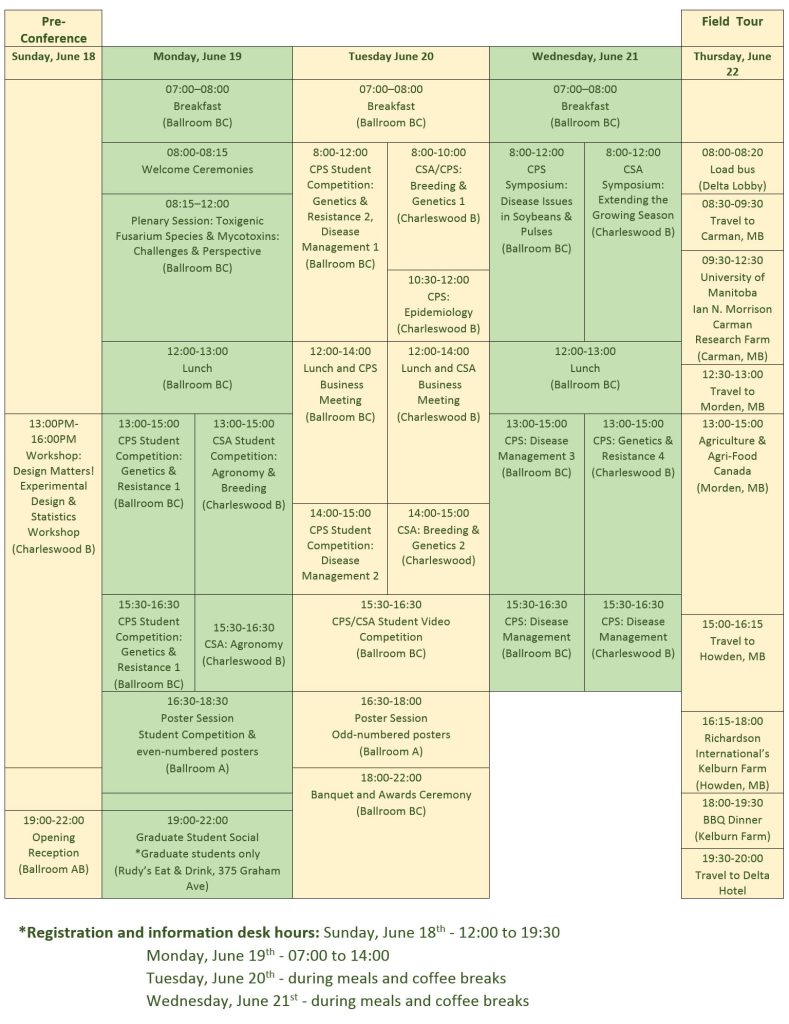
Note: Separate registration and fees apply to the Sunday workshops and the Thursday CSA/CPS Field tour. All other events are open to all registrants regardless of society affiliation unless indicated otherwise.
The Graduate Student Social will be held at Rudy’s Eat & Drink at 375 Graham Avenue on Monday, June 19th following the Student Poster Presentation session. Join us in a fun evening getting to know your fellow graduate students. There will also be a friendly quiz competition for those interested in participating or just cheering on your friends. No sign-up is required – all graduate students are welcome to attend.
Sponsors
Platinum

Gold



Silver
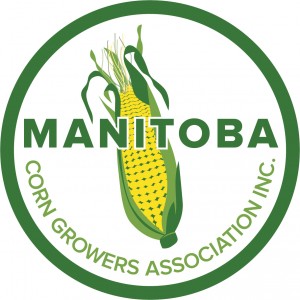




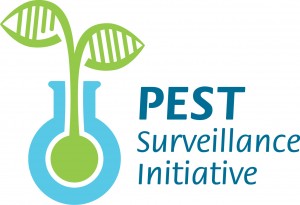


Bronze




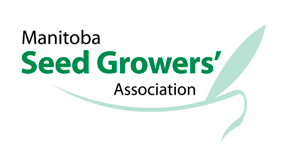
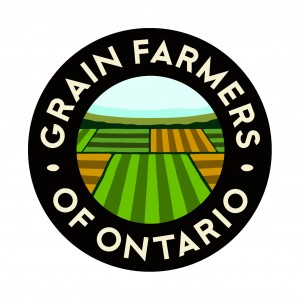

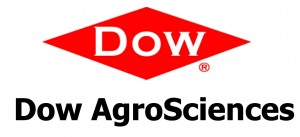
Field Tour
Escape to the field for a day and experience current agronomy and plant pathology research in Manitoba. This full day tour will take you to three research farms in Manitoba: University of Manitoba Ian N. Morrison Carman Research Farm, Agriculture and Agri-Food Canada Morden Research and Development Center, and Richardson International’s Kelburn Farm. The day will wind up with a BBQ along the scenic banks of the Red River at Kelbrun Farm.
The field tour will take place on Thursday, June 22nd from 8:30 am to 7 pm. There is a registration fee of $100 for the field tour. Lunch, dinner, and transportation are included in the registration cost of the tour. Sign up for the tour when completing your on-line registration. Attendance is limited and CPS and CSA members will be given priority. A minimum number of attendees must register for the field tour by May 22nd or it may be canceled.
Plenary Session and Symposia
Joint Plenary Session: Toxigenic Fusarium Species and Mycotoxins: Challenges and Perspective
Exploring G x E x M synergies to manage Fusarium head blight in wheat
Research Scientist – Agronomy/Chercheur scientifiques – Agronomie
Prairie and Boreal Plain Ecozone / Écozone des Prairies et de la plaine boréale
Science and Technology Branch / Direction générale des sciences et de la technologie
Agriculture and Agri-Food Canada/Agriculture et Agroalimentaire Canada
P.O.Box 3000
5403 – 1 Avenue South
Lethbridge, Alberta T1J 4B1
Title: A Systems approach to understand DON regulation in Fusarium graminearum
Ottawa Research and Development Centre|Centre de recherche et de développement d’Ottawa
Agriculture and Agri-Food Canada | Agriculture et Agroalimentaire Canada
960 Carling Avenue; Ottawa, ON, K1A 0C6
Adjunct Professor: Carleton University and University of Toronto
Title: Wheat resistance to Fusarium head blight.
USDA Research Plant Molecular Geneticist
Professor in Agronomy, Kansas State University
4008 Throckmorton Plant Sciences Center
1712 Claflin Road
Manhattan, KS 66506
Title: Fusarium mycotoxins: Current research at the USDA ARS Mycotoxin Prevention unit
Research Microbiologist
Mycotoxin Prevention & Applied Microbiology
USDA Agricultural Research Service
1815 N University St, Peoria, IL 61604
CSA Symposium: Extending the Growing Season
This symposium will look at approaches to provide ground cover beyond the time-frame that spring annual crops traditionally do. Topics to be covered include benefits to agricultural systems, diversification and potential options for producers. This symposium will conclude with a producer’s account of how they are utilizing plants to enhance their farm’s productivity and improve the soil.
Cover Crops
Joanne Thiessen Martens, Research Associate, Department of Plant Science, University of Manitoba, Research Associate, Organic Production Agronomy.
Annual and Perennial Forages
Dr. Emma Mcgeough, Department of Animal Science, University of Manitoba, Sustainable Grasslands/Livestock Production Systems.
Winter Annuals
Dr. Jamie Larsen, Agriculture and Agri-Food Canada, Lethbridge Research Centre.
Forage Seed and Perennial Grains
Douglas J. Cattani, Department of Plant Science, University of Manitoba, Perennials crops breeding and Agronomy.
Bioenergy
Dr. Naresh Thevathasan, University of Guelph
A Producer’s Perspective
Mr. Ryan Byod, SG&R Farms, Forrest Manitoba.
CPS Symposium: Disease issues in soybeans and pulses: Old foes and new challenges
Dr. Sabine Banniza:
The Long Path to Understanding a Host-Pathogen System: Colletotrichum lentis on lentil.
Dr. Anne Dorrance:
Management of Phytophthora sojae in soybean: a review and future perspectives.
Dr. Mario and Albert Tenuta:
Current and emerging nematode issues with soybean and pulses in Canada
Dr. Lone Buchwaldt:
Review of Colletotrichum lentis races on lentil and polymorphisms in the IGS region of ribosomal DNA related to pathogenicity.
Workshops
Design Matters! Experimental Design and Statistics
Organized by: Rob Gulden, University of Manitoba, Winnipeg, MB, Canada, and Alissa Kriss, Syngenta Crop Protection, Greensboro, NC, U.S.A.
Registrants will learn the basics of experimental designs that are typically used in greenhouse, lab, and field-based plant pathology, weeds and agronomy research studies, why one would choose to use a certain design for their study, and how to evaluate prior to doing the study that a good choice was made. We will link experimental design and study planning with the analysis of observed data and interpretation of statistical results through several examples given during the workshop and also provide the registrant opportunities for deeper study post-workshop. Code will be provided in SAS and it is recommended (but not required) that registrants have SAS on their computers. The free SAS University Edition is acceptable.
This workshop will take place on Sunday, June 18 from 12:30 to 15:30. There is a registration fee of $20.00 for this workshop. Attendance is limited and CPS and CSA members will be given priority.
Scientific Writing Workshop
Organized by: Brent McCallum, Agriculture and Agri-Food Canada, Morden, MB, Canada
This workshop focuses on the scientific writing and publishing process. It will involve the steps to consider when preparing your manuscript, the editorial process, avoiding common mistakes in submitting a paper, and maximizing the impact of your publications. We are fortunate to have the Editor-in-Chief of the Canadian Journal of Plant Pathology (CJPP), Dr. Zamir Punja, participating and sharing his extensive experience with participants. The Editor-in-Chief of the Canadian Journal of Plant Science (CJPS), Dr. Brian Beres, will give his perspectives and insights from the CJPS. Allison Paskins, from the publishers Taylor & Francis , will give a view on the publication process and how it is evolving over time from the publisher of the CJPP and many other high level scientific journals. Section Editor for the CJPP, Dr. Tom Fetch will also give a perspective on common mistakes to avoid when submitting a manuscript to a journal. The workshop is focussed on graduate students and early career scientists; however it should also be useful to anyone else who is interested in improving the quality, and maybe even the quantity, of their publications.
This workshop will take place on Sunday, June 18 from 16:00 to 17:30. There is a registration fee of $20.00 for this workshop. Attendance is limited and CPS and CSA members will be given priority.
Conventional and Molecular Methods for Detecting Phytophthora sojae and Fusarium Head Blight Pathogens
Organized by: Maria Antonia Henriquez, Agriculture and Agri-Food Canada, Morden, MB, Canada, and Debra McLaren, Agriculture and Agri-Food Canada, Brandon, MB, Canada
The registrants will have the opportunity to gain hands-on experience on a simple approach for the isolation and pathotype analysis of Phytophthora sojae from infected field samples and the isolation and identification of Fusarium Head Blight pathogens from cereals.
This workshop will take place on Sunday, June 18 from 13:00 to 17:00. There is a registration fee of $30.00 for this workshop. Attendance is limited (20 Participants) and CPS and CSA members will be given priority.
Video / Photo contest
Photo contest
We are pleased to announce that we are hosting a Photo Contest. Now is the time to go through your photographs in readiness for the contest at our 2017 Annual Meeting in Winnipeg.
Video Contest
Submit Abstracts
Back to Event Registration Page
To ensure that the abstracts have a uniform format for rapid publication, please adhere to the following guidelines for submitting abstracts.
Format for abstracts submitted to the Canadian Journal of Plant Pathology from the annual meeting of the Canadian Phytopathological Society and from all regional meetings of the CPS:
Word processor
– Microsoft Word preferred but Word Perfect O.K.
Abstract font
– Times New Roman font and 12 po preferred
Abstract title
– in bold, scientific names bold and italicised
– only the first word of the title, proper names, and scientific names have the first letter capitalized
Author names
– in normal font, initial(s) first, followed by last name (e.g. A. B. SMITH AND C. B. JONES)
Affiliations
– in italics and need to include postal address and postal code (no abbreviations except for province or state names)
– first affiliation should be that of the first author. If other authors have different affiliations, those affiliations should start with the author’s initials, e.g. (C.B.J.)
Abstract body
– in normal font with scientific names italicised
– should be no more than 250 words
– scientific authorities are to be given for all Latin names the first time they are mentioned in the body of the abstract
– abbreviations, nomenclature, symbols for units of measurements, etc. are to conform to the requirements for manuscripts submitted to CJPP
Below the abstract clearly indicate the following:
– name of the person presenting the abstract along with a telephone number and/or email address
– names of two people (other than the authors) who critically read the abstract
– when the abstracts are compiled for publication in CJPP, this information will be omitted and the abstracts put in alphabetical order according to the author names
Abstract fee:
– there is a $35 fee for each abstract to be published in CJPP
– this will be collected by the local organizing committee of the meetings and forwarded to the treasurer of the CPS society
The following is an example of how an abstract should appear. One section that some authors do not pay enough attention to with respect to format is the affiliations. Complete addresses should be given in the format shown below. Another area that some authors neglect is providing the scientific authorities for Latin names. If authors do not provide the correct format, they may be asked to do so before their abstract will be published.
The title of the abstract is to be bold. A. B. SMITH, C. B. JONES AND D. SMITH-JONES. London Research and Development Centre, Agriculture and Agri-Food Canada, 1391 Sandford Street, London, ON N5V 4T3, Canada; (C.B.J.) Department of Biological Sciences, Simon Fraser University, 8888 University Drive, Burnaby, BC V5A 1S6, Canada; and (D.S.-J.) Department of Plant Science, McGill University, Macdonald Campus, 21 111 Lakeshore Road, Sainte-Anne-de-Bellevue, QC H9X 3V9, Canada
The body of the abstract (not including the title, author names, and affiliations) should be carefully written to stay within the limit of 250 words. An abstract should contain a description of the problem, results, and concluding statement. The abstract should be concise with just enough information to introduce your subject and generate interest. Abstracts should be typed as single space. Use the text font Times New Roman and 12 po. Scientific authorities are to be given for all Latin names the first time they are mentioned in the body of the abstract. Cultivar names are to have single quotation marks around them every time they are mentioned. All abbreviations are to be spelled out in full the first time they are mentioned in the body of the text. Authors are to have their abstract(s) proofread by two colleagues for clarity and grammar.
Instructions for oral presentations: Oral presentations will be 15 minutes. This will include a 12 minute presentation and 3 minutes for questions. This should be strictly adhered to, especially for students in the oral competition. PowerPoint is a good tool for making presentations. Each presentation should have clear, appealing slides. The presentation should have a title slide, an introduction to the importance of the work, and a clear objectives slide. Slides should not be overcrowded. Graphics and photographs are encouraged. A good rule of thumb is one minute for each slide, not including the title slide.
Instructions for poster presentations: Posters should be prepared in a portrait format and be 3ft wide by 4 ft tall. Posters should be readable from a distance of 2 meters. For adequate visibility, the font size should be a minimum of 30 point. Avoid overcrowding of tables and figures. Each table and figure should have a legend and a title. Graphics are encouraged. The poster should be self-explanatory. PowerPoint is a good tool for making posters.
Instructions to Authors
Deadline for submission of abstracts is May 15. There is a $35 fee/abstract for publication of abstracts in the Canadian Journal of Plant Pathology. The format of abstracts must follow that for CJPP (submit-abstracts). Underline the speaker’s name, indicate whether the presentation is oral or poster, and indicate if it is a student presentation.
Poster presentations
Posters should be prepared in a portrait format and be 3 ft wide by 4 ft tall. Posters should be readable from a distance of 2 meters. For adequate visibility, the font size should be a minimum of 30 point. Avoid overcrowding of tables and figures. Each table and figure should have a legend and a title. Graphics are encouraged. The poster should be self explanatory. PowerPoint is a good tool for making posters.
Oral presentations
Oral presentations will be 15 minutes. This will include a 12 minute presentation and 3 minutes for questions. This should be strictly adhered to, especially for students in the oral competition. PowerPoint is a good tool for making presentations. Each presentation should have clear, appealing slides. The presentation should have a title slide, an introduction to the importance of the work, and a clear objectives slide. Slides should not be overcrowded. Graphics and photographs are encouraged. A good rule of thumb is one minute for each slide, not including the title slide.
Registration fees
| CPS / CSA Members | Non-Members | |||
| Regular | Student | Regular | Student | |
| Early, May 15, 2017 | $450 | $225 | $550 | $275 |
| Regular, After May 15, 2017 | $550 | $275 | $650 | $375 |
| One day | $200 | $100 | $300 | $200 |
| Tour | $100 | |||
| Fusarium/Phytophthora* | $30 | |||
| Experimental design and statistics* | $20 | |||
| Manuscript preparation* | $20 | |||
Deadlines
Abstract submission deadline – May 15 th, 2017
Early registration deadline – May 15 th, 2017
Hotel Conference Rate guaranteed until May 26, 2017.
Travel Information
Delta Hotels by Marriott Winnipeg
350 St Mary Ave, Winnipeg, Manitoba R3C3J2, CA
- Book your group rate for CPS 2017
- Mayor’s message
- How to get to Winnipeg
- Downtown Winnipeg visitors map
- Find it downtown
Contact Info for 2017 Joint CPS CSS meeting
CPS
James G. Menzies – jim.menzies@canada.ca
Fouad Daayf – fouad.daayf@umanitoba.ca
CSA
Yvonne Lawley – yvonne_lawley@umanitoba.ca
